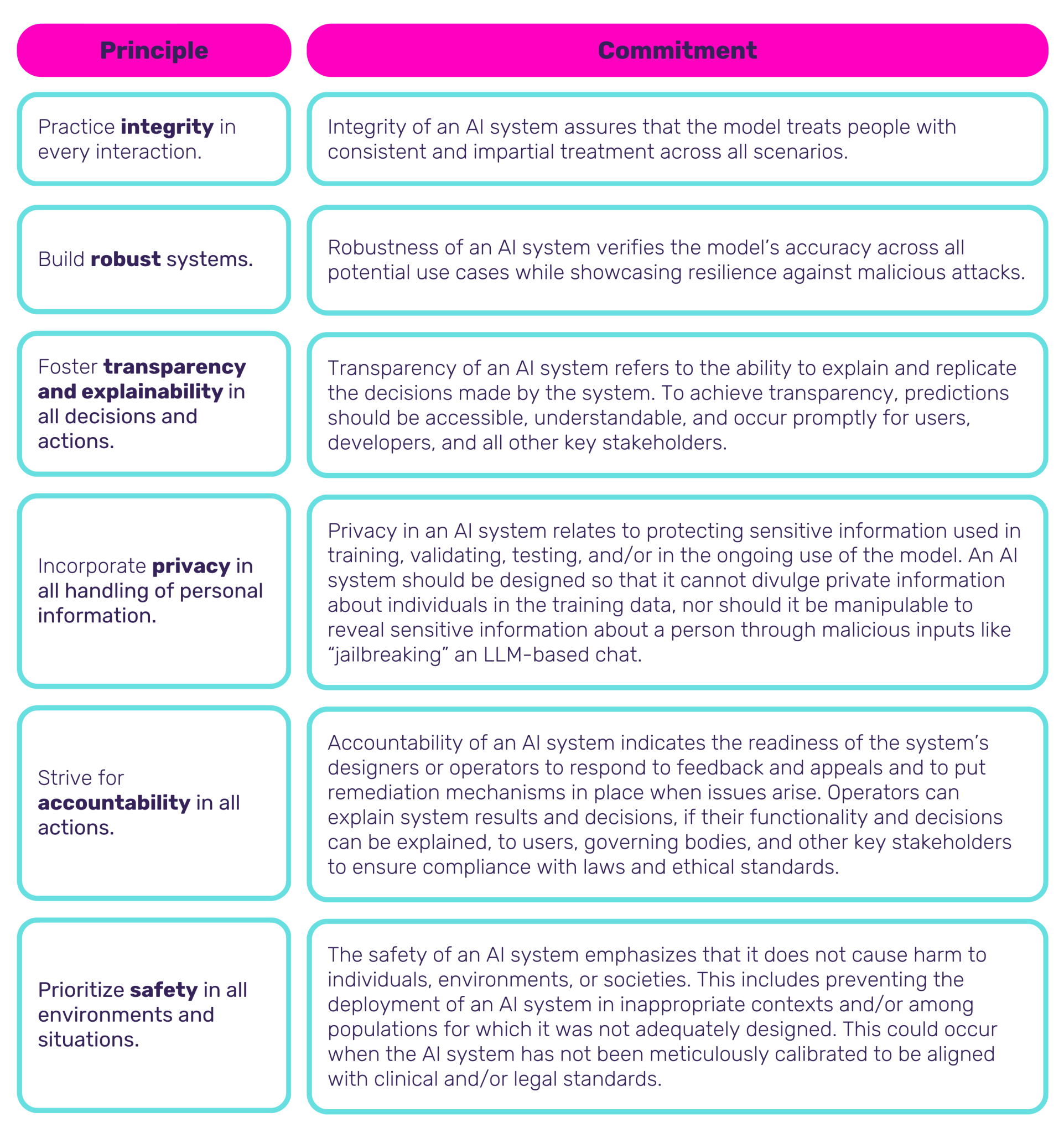AI Principles Framework:
Translating Ethics into Operational Guidelines
As Vice President of Marketing at mpathic, I developed the company's public-facing AI Principles framework, working collaboratively with technical and leadership teams to translate abstract ethical concepts into operational guidelines for AI development and deployment. The framework establishes six core principles centered on empathy: practicing integrity, building robust systems, fostering transparency and explainability, incorporating privacy, striving for accountability, and prioritizing safety. This framework was developed specifically for a healthcare AI company operating in highly regulated environments where ethical AI implementation is critical for patient safety and regulatory compliance.
The principles were reviewed and validated by the company's Senior Vice President of Research and Distinguished Architect for AI/ML to ensure technical accuracy and practical implementability across all product development processes. This work demonstrates my ability to bridge the gap between AI ethics theory and real-world implementation, creating frameworks that organizations can actually follow rather than abstract guidelines. The principles became integral to mpathic's approach to research, design, development, and deployment of AI technologies, serving as both internal guidelines and public accountability measures.
Key outcomes: Developed implementable AI ethics framework for healthcare technology company, established clear operational guidelines for responsible AI development, created public transparency and accountability measures.
Skills demonstrated: AI ethics framework development, stakeholder collaboration, technical-to-operational translation, healthcare AI governance, policy implementation
